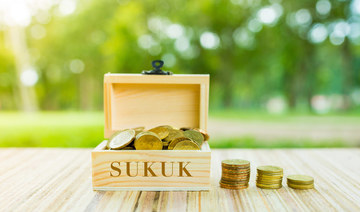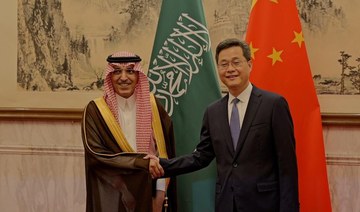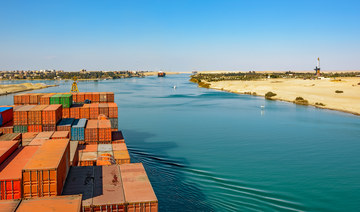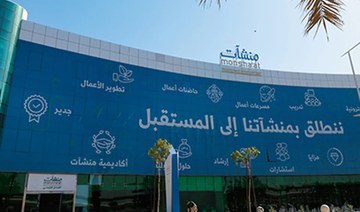LONDON: British house prices remained flat in June and the market was likely to stay sluggish in the coming months despite more properties being put up for sale, a surveyors group said on Thursday.
The Royal Institution of Chartered Surveyors’ (RICS) house price balance rose to +2 from -2 in May.
A Reuters poll of economists had pointed to a fall of -3 in June but RICS said the overall picture remained one of flat price growth and respondents taking part in the survey did not anticipate much change in the coming three months.
Britain’s housing market has cooled since the 2016 Brexit vote which led to a rise in overall inflation and increased uncertainty among investors.
“For the second month in a row, new instructions have risen, with 10 percent more respondents seeing an increase in the flow of properties being put up for sale,” RICS said.
“However, with average stocks remaining close to historic lows at 43 it would be too early to suggest that this issue is lessening as an obstacle.”
Looking further ahead, London’s housing market was likely to remain a weak spot — prices were not expected to rise in the capital and the neighboring south east region, in contrast to much of the rest of the country.
UK housing market remains in the doldrums — survey
UK housing market remains in the doldrums — survey

Saudi aviation sector surges with over $20bn in deals at Riyadh forum
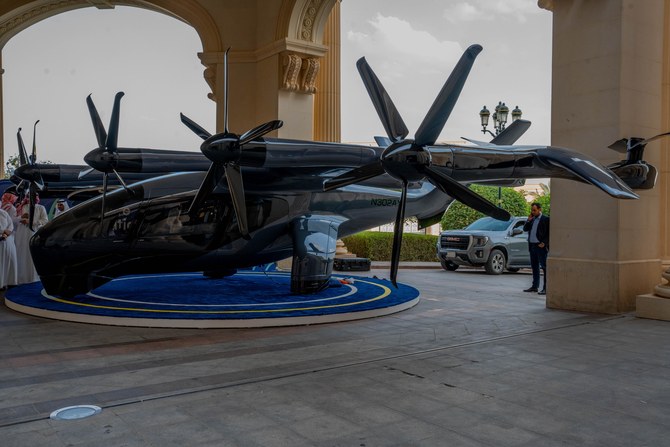
RIYADH: Saudi Arabia’s aviation sector received a major boost with over 100 agreements, exceeding SR75 billion ($20 billion), signed during the first two days of the Future Aviation Forum.
The Riyadh event saw the signing of 102 memorandums of understanding and deals, ranging from aviation services to aircraft procurement, cargo and logistics services, and advanced air mobility.
Abdulaziz Al-Duailej, president of the General Authority of Civil Aviation, said that the outcomes of the forum have exceeded all expectations.
“Over the first and second days, agreements, deals, and partnerships were established that will work toward enhancing global aviation connectivity. This underscores the international confidence in the Saudi civil aviation system and its capability to take on a leading role in this pivotal sector,” said Al-Duailej.
The most significant agreement was signed between the Saudia Group and Airbus for an order to buy an additional 105 A320neo family planes, marking the largest aircraft deal with the European firm in the Kingdom’s history.
The $19 billion deal, which includes A320neo and A321neo models, will see the aircraft distributed between Saudia and flyadeal, the group’s low-cost carrier.
Meanwhile, Saudi oil giant Aramco signed a deal with Bombardier for the purchase of two new super mid-sized Challenger 3500 business jet aircraft, with delivery scheduled for 2025 and 2026.
Additionally, BAE Systems inked a deal with the Saudi Academy of Civil Aviation to exchange experience in aviation science training.
Other agreements included a five-year contract signed between Saudia Cargo and Saudia Technic to lease up to 8,474 sq. m. within the Saudia Technic premises located in King Abdulaziz International Airport, MRO Village.
The deals also involved NEOM agreeing with Saudia Technic to engage in future discussions and collaboration in the field of aircraft maintenance, repair, and overhaul of heavy-lift Uncrewed Air System, or UAS, and passenger electric vertical take-off and landing, known as eVTOL, aircraft.
Matarat Holding Co. and the Local Content and Government Procurement Authority agreed to foster collaboration to enhance opportunities and potential for the development and advancement of local content.
Additionally, Dammam Airport Co. signed a consulting service contract with Hill International to manage DACO projects. It also sealed a cooperation agreement with the Bahrain Airport Co. Furthermore, it inked a training MoU with the Gulf Aviation Academy.
The agreements also included Saudi Arabia signing air service deals with Mozambique, Cambodia, Eswatini, and Brunei, as well as Romania, Malawi, and Belize. Additionally, the Kingdom signed similar deals with Kiribati, Grenada, Lithuania, and Sao Tome and Príncipe, as well as Salvador and Albania.
The forum witnessed a strong turnout, with over 30 ministers, 77 leaders of civil aviation authorities, CEOs from airlines worldwide, and 7,000 industry experts and leaders from over 120 countries.
During the forum, GACA unveiled the inaugural edition of the “State of Aviation” report, showcasing the sector’s contribution to the Kingdom’s economy, totaling $53 billion, and its role in generating 958,000 jobs across different regions.
GACA also hosted the first exhibition aimed at facilitating investment in the Saudi aviation sector, with a focus on the advanced air mobility pavilion being among the exhibition’s prominent pavilions.
Qatar issues green bonds worth $2.5bn
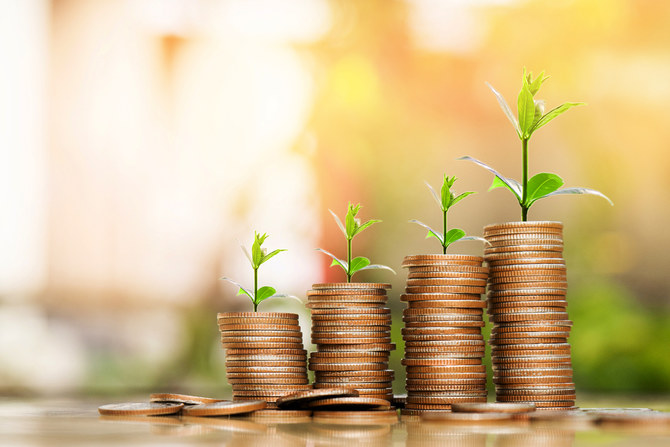
RIYADH: Qatar has issued green bonds in two tranches totaling $2.5 billion, according to official data.
Citing a release from the International Financing Review, Reuters reported that the operation is the Gulf state’s first external debt issuance in four years.
According to the IFR report, Qatar sold five-year offerings worth $1 billion with a yield of 30 basis points above US treasury bonds, and ten-year debt securities worth $1.5 billion with a yield of 40 basis points.
This comes several months after global professional services network KPMG encouraged the Gulf country to issue green bonds and adopt sustainable financing mechanisms, saying that this step would help the country achieve its sustainability goals.
The report also showed that Qatar reduced the initial indicative rate to 70 basis points over US treasury bonds for five-year debt securities and 80 basis points over US treasury bonds for 10-year offerings after receiving total orders exceeding $10.9 billion.
On another note, new data revealed that in the first quarter of 2024, Qatar recorded a merchandise trade balance surplus of 53.2 billion Qatari riyals ($14.6 billion), down from 68.4 billion riyals in the same quarter last year.
Issued by the country’s National Statistics Center, the analysis also disclosed that the value of Qatar’s total exports, including foreign sales of domestic goods and re-exports, amounted to 87.6 billion riyals, reflecting an 8.6 percent drop compared to the corresponding period in 2023.
On the other hand, during the same period, the value of Qatar’s imports stood at 34.4 billion riyals, reflecting a 25.4 percent surge in comparison to the first quarter of 2023.
When asked about the issuance of external debt in January, Qatar’s Finance Minister Ali Al-Kuwari, said: “We’re ready to do it very soon.”
Speaking to Bloomberg Television on the sidelines of the World Economic Forum in Davos at the time, the official highlighted that Qatar is “not hungry for money,” but it will pursue the issuance “mainly to send a strong statement” in combating climate change.
One of the world’s biggest producers of liquefied natural gas, Qatar has not issued eurobonds since early 2020, when it sold $10 billion of debt.
In 2022, the Gulf state’s central bank announced plans to implement strategic actions, including facilitating green bond issuance and advancing cooperation with the Qatar Development Bank, to promote diversification efforts. The aim is to fund projects to reduce carbon and other planet-warming emissions.
Saudi Arabia, China explore private sector investment opportunities during Beijing meeting
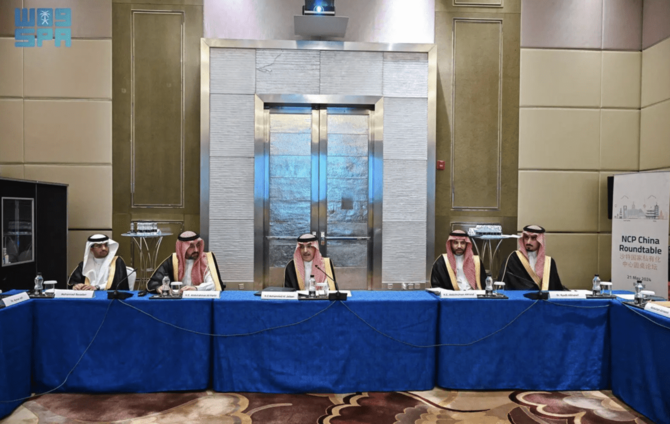
RIYADH: Chinese participation in Saudi Arabia’s private-sector projects is set to increase as the Kingdom’s Finance Minister Mohammed Al-Jadaan held meetings with top officials in Beijing.
Al-Jadaan, who is also the chairman of the National Center for Privatization & PPP, led a roundtable meeting with senior officials of Chinese companies in cooperation with the Industrial and Commercial Bank of China to discuss partnership opportunities.
In his opening address, the finance minister emphasized the depth of the bilateral relationship between the two nations, highlighting the trust and ongoing collaboration across diverse sectors, the Saudi Press Agency reported.
He revealed that the NCP has so far awarded over 60 privatization and partnership contracts in eight key sectors since its establishment, totaling a capital investment exceeding $10 billion.
Al-Jadaan also highlighted the NCP’s proactive measures in fortifying the ecosystem, including the adoption of privatization laws and complementary statutory frameworks aimed at expediting the implementation of PPP projects.
During the meeting, participants emphasized the potential for PPP - public private partnership – ventures within the infrastructure sector, outlining pathways for companies and investors to engage in these initiatives across diverse domains. Special focus was placed on construction, transportation, water management, and airport development.
At the close of the meeting, the minister commended the ICBC’s role in bolstering the NCP’s efforts to showcase privatization and partnership opportunities to Chinese investors and firms.
NCP plays a key role in facilitating the privatization program, a key priority outlined in the realization of the Saudi Vision 2030, according to its website.
The center assists in drafting regulations, establishing frameworks, and preparing government assets and services for privatization. Additionally, it is developing the privatization pipeline, proposing sectors and government assets and services for potential improvement through private sector involvement.
In 2023, the NCP unveiled its privatization and PPP pipeline, featuring 200 approved projects spanning 17 sectors. This initiative was in alignment with the objectives of Vision 2030, aiming to elevate the private sector’s contribution to the gross domestic product from 40 percent to 65 percent by 2030.
As of the same year, the pipeline encompassed over $50 billion in investments, with an additional 300 projects under evaluation, signifying promising growth prospects.
Egyptian merchandise exports reach $13bn in first 4 months of 2024
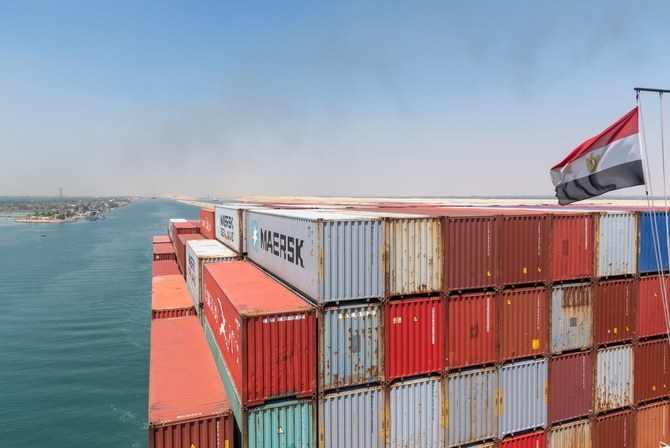
RIYADH: Egyptian merchandise exports reached $12.91 billion during the first four months of 2024, reflecting an annual 10 percent increase.
The country’s Minister of Trade and Industry, Ahmed Samir, highlighted that this continuous rise in merchandise exports has persisted for the fourth consecutive month, according to an official announcement.
The ministry aims to further increase exports from all production sectors to various global markets in the upcoming phase.
This strategy involves a concerted effort by the authority, its affiliated bodies, the business community, and Egyptian exporters to enhance the quality and competitiveness of Egyptian products both locally and globally. This will contribute to the state’s target of achieving $100 billion in annual merchandise exports.
Saudi Arabia emerged as the largest market for Egyptian merchandise exports during the first four months of 2024, with a value of $1.1 billion compared to $993.6 million during the same period in 2023.
Turkiye followed with $1.08 billion compared to $900.5 million, Italy with $793.1 million to $785.5 million, and the UAE with $735 million to $460 million. The US stood at $716.2 million compared to $587.1 million.
The main sectors forming the structure of Egyptian merchandise exports during this period included building materials worth $2.88 billion, food industries worth $2.10 billion and chemical products and fertilizers worth $1.98 billion, as well as agricultural products worth $1.77 billion, engineering and electronic goods worth $1.70 billion, and ready-made garments worth $855 million.
Key export items that increased from January to April 2024 included fresh and dried citrus worth $767 million, gold worth $650 million, and nitrogen fertilizers worth $588.5 million.
Earlier in May, the International Monetary Fund projected that Egypt’s foreign cash inflows would come from five sources, including commodity exports, tourism and Suez Canal revenues, as well as private transfers and net foreign direct investment.
The fiscal year 2023-2024 total will be around $107.3 billion, compared to about $93.6 billion in 2022-2023.
Despite expectations of an increase in foreign cash revenue from these sources in 2024, the IMF anticipates inflows to decrease again in the next fiscal year, dropping below the previous year’s level to approximately $91.2 billion.
Saudi Monsha’at and Social Development Bank ink deal to boost SME financing

RIYADH: Saudi small and medium enterprises are set to receive a finance boost thanks to a new deal signed by the Kingdom’s Social Development Bank.
The cooperation agreement, inked with the country’s SME general authority, also known as Monsha’at, will see the authority joining the bank’s Entrepreneurs Program, the Saudi Press Agency reported.
This collaboration aims to provide the necessary financing solutions and facilities for the growth of SME projects and the expansion of their businesses.
The program is a financing product aimed at supporting the assets and operating costs of new business entities in the Kingdom.
This initiative aligns with Monsha’at’s objective to bolster the growth and competitiveness of SMEs by collaborating with strategic partners from various sectors, both locally and globally. The goal is to create an enabling environment and foster a leading society.
Furthermore, it resonates with the bank’s vision to be pioneers in empowering social development tools and enhancing the financial independence of individuals, families, and entities toward a vibrant and productive society.




